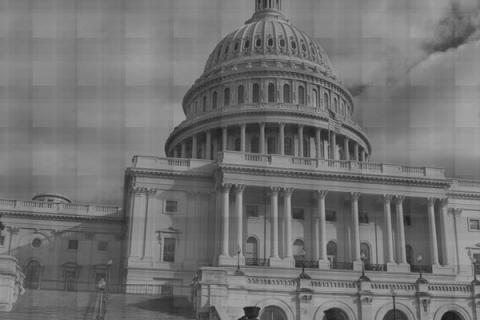The very form and structure of two-party politics ensures the marginalization and exclusion of Independents from the nation’s mainstream political discourse, allowing Republicans and Democrats to engage in their well-rehearsed charades. Hypocrisy is just one of the names for the game.
The charge of partisan hypocrisy is one of the most common criticisms Democrats and Republicans level against one another. Essentially, it is a critique of what we might term political relativism. Democrats and Republicans will actively defend a position held by one of their own, but they will denounce that very same position if it is articulated by the other side. The practice is so widespread and well-known it hardly requires any elaboration. Many Democrats who were outraged by most aspects of the Bush administration's foreign policy, and once had no compunctions about articulating their concerns, are noticeably silent about the Obama administration's continuation or even escalation of those very same policies. Republicans who stood idly by as the Bush administration embarked upon one of the largest expansions of the federal government in generations, cannot contain their anger at modest extensions of unemployment benefits under Democratic party rule.
On Sunday, Ross Douthat tackled this theme in his opinion column for the New York Times with an article entitled "The Partisan Mind." Douthat observes that:
"we tend to reverse-engineer the arguments required to justify whatever our own side happens to be doing. Our ideological convictions may be real enough, but our deepest conviction is often that the other guys can’t be trusted."
Despite his reservations about such intellectual and political dishonesty, the conservative commentator ends his article on a positive note. He states that, regardless of its drawbacks, this form of partisanship ensures the existence of political opposition and serves as a check on the powers that be. Douthat writes:
"It guarantees that even when there’s an elite consensus behind whatever the ruling party wants to do (whether it’s invading Iraq or passing Obamacare), there will always be a reasonably passionate opposition as well. Given how much authority is concentrated in Washington, especially in the executive branch, even a hypocritical and inconsistent opposition is better than no opposition at all."
There is, however, a glitch in Douthat’s conclusion which results from his presupposition that the bipolar form of Democratic-Republican party politics is constitutive of politics as such. If a hypocritical and inconsistent opposition is better than no opposition at all, where are we to find political opposition when there is a policy consensus between the Republican and Democratic parties? This question is not as absurd as it may sound. Despite the perennial complaints about rabid partisanship in Washington D.C., bipartisan consensus does in fact exist. One might suggest, perhaps ironically, that there is even a bipartisan consensus in favor of excessive political partisanship. More seriously though, such consensus undoubtedly forms the basis of policies promulgated in the name of the ongoing war on terrorism and the failed war on drugs, to name but two obvious examples.
It is a commonly held conceit among the partisans of the major parties, not to mention their circus ringmasters in the mainstream media, that an issue is entirely exhausted once a Democrat and Republican have come to an agreement or disagreement on the matter at hand. This is virtually axiomatic in the duopolized political discourse to which we have become accustomed. The working assumption in the political media is that there are no other legitimate positions from which to articulate a political opinion, let alone elaborate a program, than those of Democrats and Republicans. If there is bipartisan agreement between Democrats and Republicans on a given issue, then there is effectively no political opposition on the matter, and even if there is opposition to it among the public, it might simply be disregarded or dismissed. In other words, the positions of the millions of Independents and third party advocates in the country, who account for at least a third of the electorate, are often marginalized if not completely discounted by the very form and structure of two-party politics.
If the Independent movement continues to grow in size and strength, this state of affairs will become ever more unstable and increasingly unsustainable. And it’s already teetering on the brink.

